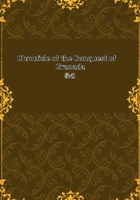
第67章
Hamet now lit alarm-fires about the heights: his standard was joined by the neighboring mountaineers and by troops from Malaga. Thus reinforced, he made repeated assaults upon the Christians, cutting off all stragglers from the camp. All his attempts to force his way into the city, however, were fruitless; many of his bravest men were slain, and he was obliged to retreat into the fastnesses of the mountains.
In the mean while the distress of Ronda increased hourly. The marques of Cadiz, having possession of the suburbs, was enabled to approach to the very foot of the perpendicular precipice rising from the river on the summit of which the city is built. At the foot of this rock is a living fountain of limpid water gushing into a great natural basin. A secret mine led down from within the city to this fountain by several hundred steps cut in the solid rock. Hence the city obtained its chief supply of water, and these steps were deeply worn by the weary feet of Christian captives employed in this painful labor. The marques of Cadiz discovered this subterraneous passage, and directed his pioneers to countermine in the side of the rock; they pierced to the shaft, and, stopping it up, deprived the city of the benefit of this precious fountain.
While the marques was thus pressing the siege with the generous thought of soon delivering his companions-in-arms from the Moorish dungeons, far other were the feelings of the alcayde, Hamet el Zegri. He smote his breast and gnashed his teeth in impotent fury as he beheld from the mountain-cliffs the destruction of the city.
Every thunder of the Christian ordnance seemed to batter against his heart. He saw tower after tower tumbling by day, and various parts of the city in a blaze at night. "They fired not merely stones from their ordnance," says a chronicler of the times, "but likewise great balls of iron cast in moulds, which demolished everything they struck. They threw also balls of tow steeped in pitch and oil and gunpowder, which, when once on fire, were not to be extinguished, and which set the houses in flames. Great was the horror of the inhabitants: they knew not where to fly for refuge: their houses were in a blaze or shattered by the ordnance; the streets were perilous from the falling ruins and the bounding balls, which dashed to pieces everything they encountered. At night the city looked like a fiery furnace; the cries and wailings of the women between the thunders of the ordnance reached even to the Moors on the opposite mountains, who answered them by yells of fury and despair.
All hope of external succor being at an end, the inhabitants of Ronda were compelled to capitulate. Ferdinand was easily prevailed upon to grant them favorable terms. The place was capable of longer resistance, and he feared for the safety of his camp, as the forces were daily augmenting on the mountains and making frequent assaults.
The inhabitants were permitted to depart with their effects, either to Barbary, Granada, or elsewhere, and those who chose to reside in Spain had lands assigned them and were indulged in the practice of their religion.
No sooner did the place surrender than detachments were sent to attack the Moors who hovered about the neighboring mountains.
Hamet el Zegri, however, did not remain to make a fruitless battle.
He gave up the game as lost, and retreated with his Gomeres, filled with grief and rage, but trusting to fortune to give him future vengeance.
The first care of the good marques of Cadiz on entering Ronda was to deliver his unfortunate companion-in-arms from the dungeons of the fortress. What a difference in their looks from the time when, flushed with health and hope and arrayed in military pomp, they had sallied forth upon the mountain-foray! Many of them were almost naked, with irons at their ankles and beards reaching to their waists. Their meeting with the marques was joyful, yet it had the look of grief, for their joy was mingled with many bitter recollections. There was an immense number of other captives, among whom were several young men of noble families who with filial piety had surrendered themselves prisoners in place of their fathers.
The captives were all provided with mules and sent to the queen at Cordova. The humane heart of Isabella melted at the sight of the piteous cavalcade. They were all supplied by her with food and raiment, and money to pay their expenses to their homes.
Their chains were hung as pious trophies against the exterior of the church of St. Juan de los Reyes in Toledo, where the Christian traveller may regale his eyes with the sight of them at this very day.*
*Seen by the author in 1826.
Among the Moorish captives was a young infidel maiden, of great beauty, who desired to become a Christian and to remain in Spain.
She had been inspired with the light of the true faith through the ministry of a young man who had been a captive in Ronda. He was anxious to complete his good work by marrying her. The queen consented to their pious wishes, having first taken care that the young maiden should be properly purified by the holy sacrament of baptism.
"Thus this pestilent nest of warfare and infidelity, the city of Ronda," says the worthy Fray Antonio Agapida, "was converted to the true faith by the thunder of our artillery--an example which was soon followed by Cazarabonela, Marbella, and other towns in these parts, insomuch that in the course of this expedition no less than seventy-two places were rescued from the vile sect of Mahomet and placed under the benignant domination of the Cross."